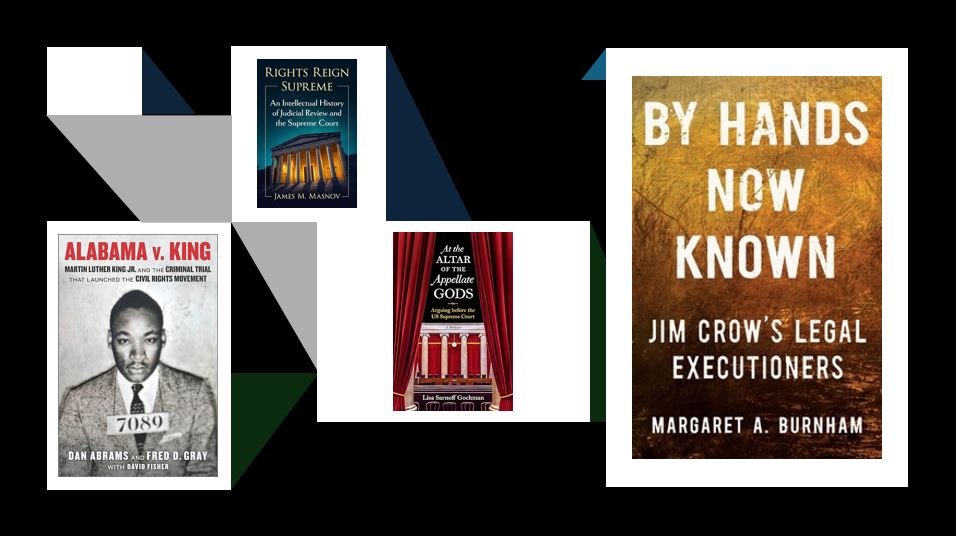Throughout the month of March, the Law Library received alerts for full-time TTU Law Faculty publications and news. Below is a compilation of those daily alerts for March 1st to March 31st, 2024.
Publications
- Prof. Gerry W. Beyer, The Viability of Inserting Descriptive Photos in Wills: A Picture is Worth a Thousand Words, 38-APR Prob. & Prop. 26 (2024).
- Prof. Brian D. Shannon, A Brief History of the Texas Insanity Defense, 13 J. TEX. S.CT. HIST’L SOC. 27-37 (Winter 2024), https://www.texascourthistory.org/Content/Newsletters/TSCHS%20Winter%202024_2.pdf.
- Prof. Victoria Sutton wrote an article on a recent 9th Cir. En banc opinion. You can find the article here: https://profvictoria.substack.com/publish/posts/detail/142532861.
| - Prof. Gerry W. Beyer, REAL PROPERTY (13, 14, & 15 West’s Texas Forms 2nd ed. 2024 Supp.).
- Prof. Ashley Arrington, “Purposefully Vague” or Problematic? Why Lawyers Must Define the Duty of Tech Competence, 20 U. St. Thomas L.J. 218 (2024).
Citations
- Prof. William R. Casto’s article Robert Jackson’s Critique of Trump v. Hawaii was cited in the following article: Seth Barrett Tillman, What Court (If Any) Decided Ex Parte Merryman?—A Correction for Justice Sotomayer (and Others), 13 Brit. J. Am. Legal Stud. 43 (2024).
- Prof. Geoffrey S. Corn’s article Should the Best Offense Ever Be a Good Defense? The Public Authority to Use Force in Military Operations: Recalibrating the Use of Force Rules in the Standing Rules of Engagement was cited in the following article: Dan Maurer, Congress and the Operational Disciplining of the Use of Armed Force: Are Rules of Engagement within the Preclusive Core of the President’s War Powers?, 84 Ohio St. L.J. 1393 (2024).
- Prof. Geoffrey S. Corn’s article Strengthening American War Crimes Accountability was cited in the following article: Rachel E. VanLandingham, Courtroom as War Crim: Ukraine’s Military Justice Struggle, 84 Ohio St. L.J. 1297 (2024).
- Prof. Geoffrey S. Corn’s article Environmental Law in Military Operations was cited in the following article: Mark Nevitt, Environmental War, Climate Security, and the Russia-Ukraine Crisis, 84 Ohio St. L.J. 1359 (2024).
- Prof. Dustin Benham’s article Foundational and Contemporary Court Confidentiality was cited in the following article: Kevin Mahoney, Countering Secrecy, 60-APR Trial 28 (2024).
- Prof. Bryan T. Camp’s article A History of Tax Regulation Prior to the Administrative Procedure Act was cited in the following article: Susan C. Morse, Old Regs: The Default Six-Year Time Bar for Administrative Procedure Claims, 31 Geo. Mason L. Rev. 191 (2024).
- Prof. Stephen T. Black’s Article Cyberdamages was cited in the following article: Austin L. Hendrick, Redefining the Injury-In-Fact: Treating Personally Identifying Information as Bailed Property, 58 Ga. L. Rev. 871 (2024).
- Prof. Richard W. Murphy’s article Enhancing the Role of Public Interest Organizations in Rulemaking via Pre-Notice Transparency was cited in the following article: Stavros Gadinis & Chris Havasy, The Quest for Legitimacy: A Public Law Blueprint for Corporate Governance, 57 U.C. Davis L. Rev. 1581 (2024).
- Prof. Geoffrey S. Corn’s article Imputed Liability for Supervising Prosecutors: Applying the Military Doctrine of Command Responsibility to Reduce Prosecutorial Misconduct was cited in the following article: Perry Moriearty, et.al., Race, Racial Bias, and Imputed Liability Murder, 51 Fordham Urb. L.J. 675 (2024).
- Prof. Richard D. Rosen’s article Deterring Pre-Viability Abortions in Texas Through Private Lawsuits was cited in the following article: Milan Markovic, Charging Abortion, 92 Fordham L. Rev. 1519 (2024).
- Prof. Richard W. Murphy’s article Administrative Law as a Legal Discipline was cited in the following article: Seth W. Berger, Setting Reasonable and Proportional Credit Crad Late Fees: Easier Said Than Done, 28 N.C. Banking Inst. 203 (2024).
- Prof. Jamie Baker’s article Beyond the Information Age: The Duty of Technology Competence in the Algorithmic Society was cited in the following article: Drew Simshaw, Technology Competence as a Compass for Helping to Close the Justice Gap, 20 U. St. Thomas L.J. 129 (2024).
- Prof. Jamie Baker’s article Beyond the Information Age: The Duty of Technology Competence in the Algorithmic Society was cited in the following article: Peter A. Hook, Developing Data Fluent Lawyers by Teaching Litigation Analytics, 20 U. St. Thomas L.J. 295 (2024).
- Prof. Jamie Baker’s article Beyond the Information Age: The Duty of Technology Competence in the Algorithmic Society Amy A. Emerson, A Threshold Assessment: Is Technology Among the Competencies Tested by the MPRE?, 20 U. St. Thomas L.J. 129 (2024).
- Prof. Jamie Baker’s article Beyond the Information Age: The Duty of Technology Competence in the Algorithmic Society was cited in the following article: Jennifer A. Brobst, The Lawyer’s Duty to Understand the Disparate Impact of Technology in the Legal Profession, 20 U. St. Thomas L.J. 129 (2024).
- Prof. Jamie Baker’s article Beyond the Information Age: The Duty of Technology Competence in the Algorithmic Society was cited in the following article: Iantha Haight, A Rubric for Analyzing Legal Technology Using Benefit/Risk Pairs, 20 U. St. Thomas L.J. 129 (2024).
- Prof. Ashley Arrington’s article “Purposefully Vague” or Problematic? Why Lawyers Must Define the Duty of Tech Competence was cited in the following article: Michael Robak, An Introduction to a Roadmap for Law School Modernity: Teaching Technology Competence, 20 U. St. Thomas L.J. 129 (2024).
Notes
- The Texas Coalition to Abolish the Death Penalty presented an Appreciation Award to Horn Distinguished Professor Brian Shannon in Fort Worth on March 2 for his assistance in two death penalty cases in which the defendants are seriously mentally ill and incompetent to be executed. See https://tcadp.org/what-we-do/annual-conference/.
- On March 8, 2024, Prof. Gerry W. Beyer was a co-presenter for the Symposium entitled A Hitchhiker’s Guide to AI at the Annual Meeting of the American College of Trust and Estate Counsel in Phoenix, Arizona. To a crowd of over 400 estate planning attorneys, Prof. Beyer and his co-presenters explained the impact of AI on the estate planning practice. Prof. Beyer’s segment focused on the ethical considerations that arise when using AI.
- Prof. Ashley Arrington presented Will the NextGen Bar Truly Test Lawyering Skills? An Evaluation at the Rocky Mountain Legal Writing Conference on March 9.
- Prof. Gerry W. Beyer’s podcast entitled A Discussion of Ante-Mortem Probate, a process of validating the will of a living person available in some states, was released as the March 19, 2024 issue of the American College of Trust and Estate Counsel’s Trust and Estate Talk.


